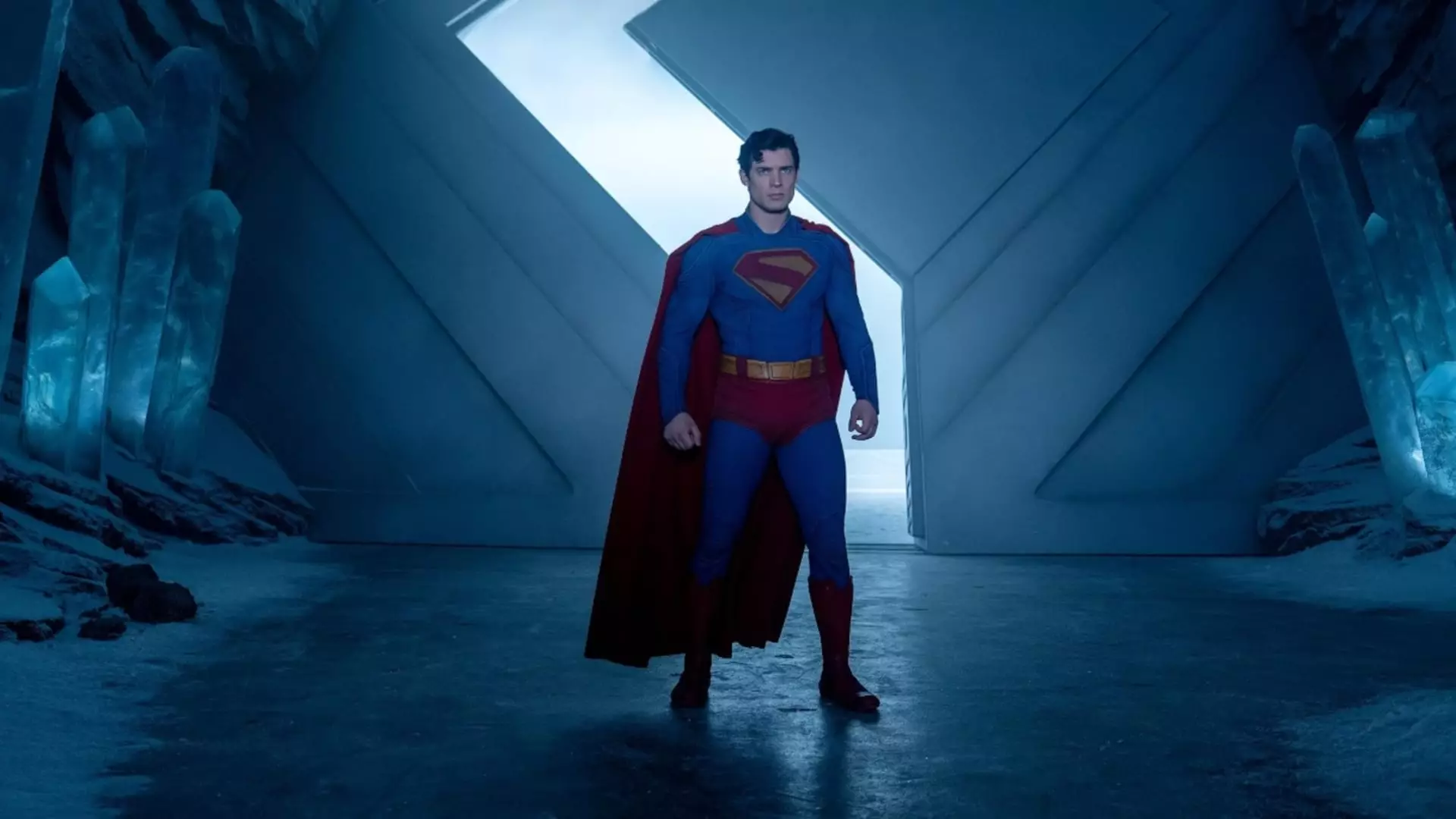In an era where Hollywood increasingly relies on franchises and spectacle to drive box office success, the recent performance of Warner Bros.’ “Superman” signals more than just economic potential—it reflects a significant cultural shift. With a record-breaking $22.5 million from preview screenings, the new superhero film signifies a deliberate attempt by the industry to reconnect with audiences longing for hope, familiarity, and a sense of heroism that transcends mere escapism. Yet, this surge also raises questions about the risks of leaning too heavily on nostalgia and the core mythology of beloved characters.
Unlike past blockbusters, which often relied on spectacle and franchise branding, the film’s impressive preview numbers suggest an earnest desire among audiences for meaningful storytelling. When “Superman” surpasses previous previews by such a margin, it indicates that even in a marketplace crowded with superhero movies, there remains a core segment seeking narratives that resonate on a personal and societal level. This is especially pertinent given the ongoing cultural debates about heroism, resilience, and the role of larger-than-life figures during times of uncertainty.
Rebuilding Trust: Can the New DC Vision Live Up?
James Gunn and Peter Safran’s leadership marks a notable shift for DC, promising a ten-year plan aimed at revitalizing the franchise with fresh perspectives. Their track record—fostering success with “Guardians of the Galaxy” and “The Suicide Squad”—instills some confidence, but also highlights the enormous stakes involved. Both executives are navigating a delicate balance: honoring the iconic identities of Superman and Batman while reinventing these characters for a new generation that demands relevance and authenticity.
The film’s anticipation of a $130–$140 million opening indicates cautious optimism, yet it also underscores the challenge of living up to colossal expectations. For a franchise that has historically struggled with inconsistent tonal shifts and narrative depth, this new era must prioritize more than just box office figures. It must deliver on emotional truth and societal resonance, effectively bridging the gap between generations, social backgrounds, and cultural perspectives.
Criticism and Skepticism: Are We Setting Up Heroes for Failure?
While the initial box office data appears promising, skepticism remains warranted. The superhero genre, despite its mass appeal, risks becoming a choreographed cycle of hype and disappointment. Relying primarily on established characters like Superman invites accusations of creative stagnation, where studios default to safe bets instead of daring, innovative storytelling. It is crucial for Warner Bros. to demonstrate that this reboot isn’t just a superficial lift but a transformative narrative that respects the character’s origins while making them relevant to today’s societal issues.
Moreover, the film’s current high critic score suggests quality, but critics’ praise doesn’t guarantee sustained audience engagement. The real test is whether viewers will embrace this iteration wholeheartedly, especially younger audiences who may see Superman as an outdated symbol or a relic of a different cultural era. To truly succeed, the film must foster a sense of community, shared values, and hope—elements that have been increasingly challenged in a polarized society.
The Broader Cultural Implication: Hope in a Divided World
In a world plagued by political division, environmental crises, and social upheaval, the resurgence of a figure like Superman offers a compelling reflection of our collective longing for hope and justice. This new film has the potential not just to entertain but to serve as a cultural touchstone—if it chooses to prioritize themes of resilience, community, and moral integrity.
However, the risk lies in superficial patriotism or simplistic portrayals that fail to challenge the complex realities of today’s world. The ideal Superman story must transcend nationalistic symbolism and instead become a nuanced commentary on contemporary issues—an archetype of hope grounded in real-world challenges. Only then can the franchise continue to evolve beyond mere spectacle and foster a deeper, more meaningful connection with audiences seeking genuine inspiration.
Warner Bros.’ strategic gamble with “Superman” embodies the broader dilemma of modern Hollywood: can large-scale spectacle be paired with meaningful storytelling? The early numbers are promising, but the true measure of success will be whether this film can navigate the treacherous waters of cultural expectation, creative innovation, and societal relevance. The future of DC’s cinematic universe hinges on whether it dares to redefine heroism for our time, or if it falls back into the comfort zone of predictable franchises.



Leave a Reply